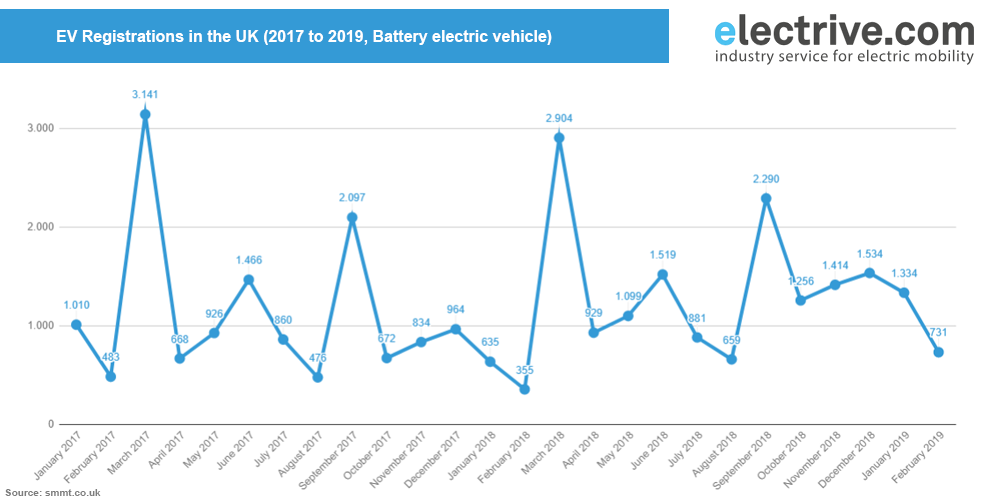Electric vehicle sales in Great Britain: ups and downs
The market for electric cars or all plug-ins in the UK has been a tough one. The former grande auto nation remains reluctant to buy into e-mobility, partly because models with left-hand drive were slow to arrive. But when they did, sales went up as our graph shows.
To begin with, the latest data released by SMMT counts 731 sales of electric vehicles in the short month of February 2019, up 105.9% compared to last year. PHEV sales remained comparably steady with an increase of 15.4% resulting in 1,373 units sold.
While the year-on-year comparison may not seem dramatic, our view including the year 2017 shows that there have been much better months for electric cars.

Take the spike in March 2017 which we dare to account partly to the opening of sales of the then next-generation Nissan Leaf. The bestselling EV is built in Sunderland and sales on the Isles have been strong. This also explains part of the September 2017 rush for electric cars as this was the month the Nissan II EV hit the market.
Also, March 2018 coincides with BMW UK celebrating having sold 10,000 BMW i3 vehicles. Another explanation for strong sales in March may be the timing – in the UK as in Japan the financial year ends in the first week of April. On a similar note, March and September are also the months when the age-identifier on UK licence plates changes to a new number, as a reader pointed out in the comments below.
Looking at the slow demise later on in the year, it remains to note that the conservative government decided to cut the subsidy electric cars by 1,000 pounds effectively by October 2018 as had previously been discussed. That also removed most plug-in hybrids from the Plug-in Car Grant entirely.
Needless to say that the uncertainty surrounding Brexit has not led to an increase in buying power in 2019. Westminster scrambled together the Road to Zero strategy as a call to decarbonise the country last year with support from the local industry. From the outside though, the latest developments saw both Nissan and BMW hesitant to further invest in the facilities they are running in the UK.
Please note, the arguments listed above are just indications, and we would be delighted to read your reasoning in the comments below.




2 Comments